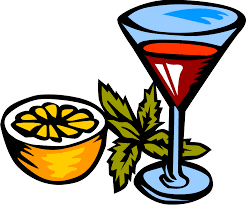 There is much controversy in research to date of whether food can reduce mood swings or even create happiness versus dread. Basically, the science of how nutrition affects moods is based on brain chemistry: Components (elements of food) can cause changes in brain structure, chemistry, and physiology, all of which reflect behavior too. Studies have shown that there are foods that typically effect moods.
There is much controversy in research to date of whether food can reduce mood swings or even create happiness versus dread. Basically, the science of how nutrition affects moods is based on brain chemistry: Components (elements of food) can cause changes in brain structure, chemistry, and physiology, all of which reflect behavior too. Studies have shown that there are foods that typically effect moods.
Omega 3 fatty Acids: these are considered essential fats that have to be eaten in a day to have any effect, since our bodies do not naturally make them. They are found in most fish sources as well as most plant based foods. Omega-3 polyunsaturated fatty acids may be mood stabilizers, and furthermore, play a role in mental health.
Studies have found that higher fish consumption than average showed improved brain health and lower levels if fish consumption reflected lower levels of DHA (the fatty acid found in fish) particularly in breast milk which caused more incidences of postpartum depression.
Examples of plant foods rich in omega-3s is flaxseed and chia seeds (1 tablespoon a day is considered a safe, effective dose for most people). Check with your doctor if you are pregnant or nursing, or have any other concerns. Other sources include canola oil, purslane (an herb), cauliflower, kidney beans, and broccoli.
 Fiber: Include lots of fiber, some lean protein, and good (unsaturated) fats to balance out your whole-grain carbohydrates. Small meals more often that include all these macronutrients keep energy balanced all day which dissipate mood swings too.
Fiber: Include lots of fiber, some lean protein, and good (unsaturated) fats to balance out your whole-grain carbohydrates. Small meals more often that include all these macronutrients keep energy balanced all day which dissipate mood swings too.
Never miss breakfast – including a wholesome, nutritious meal to rev up your metabolism first thin, leads to improved mood, along with better memory, more energy throughout the day, and feelings of calmness.
Selenium is a mineral used by brain according to much research. Many studies show that low selenium diets reflect poor mood control. This is related to the brain retaining selenium to a greater extent when levels are low in the body. This lead to the hypothesis that this mineral plays an important role in the brain.
Selenium-rich foods include: brazil nuts, walnuts, oysters, albacore tuna, clams, sardines, crab, most sources of fish, whole-wheat grins, sunflower seeds, brown rice, oatmeal, soy nuts, eggs, low-fat cottage cheese, tofu, pinto beans, and yogurt. Organ meat is extremely high in selenium, but also extremely high in cholesterol, so be aware and be balanced.
 Serotonin is a chemical also called the “feel-good” neurotransmitter helps with a calmness over stress. The more serotonin circulating, the better mood control has been reported. In the reverse, research, lower levels of serotonin have shown to increase aggression and anxiety.
Serotonin is a chemical also called the “feel-good” neurotransmitter helps with a calmness over stress. The more serotonin circulating, the better mood control has been reported. In the reverse, research, lower levels of serotonin have shown to increase aggression and anxiety.
Tryptophan. Most know this as the sleep inducing element f turkey. It is an amino acid which as enters the brain, generates serotonin (feel good chemical). Tryptophan is in almost all protein-rich foods, but the way to get more of it is not necessarily to eat these foods. Eating carbohydrates with protein help tryptophan’s chances of crossing the blood brain barrier.
Folic acid (folate). Low levels reduce serotonin in our brains. Researchers hypothesize that taking folate as a supplement and eating folate-rich foods can be the most natural anti-depressant. Folate-rich foods include spinach, green soybeans, lentils, romaine lettuce, pinto beans, black beans, navy beans, kidney beans, broccoli, asparagus, greens, orange juice, beets, papaya, brussels sprouts, and tofu.
Alcohol. Not only is it logical that alcohol is probably the worst mood stabilizer but there is also scientific evidence pointing to a relationship between serotonin dysfunction, negative moods, and excessive alcohol. We may think it is an up-lifter at first, but it is the uncertain crash that follows, which can be a mood depressor. It is recommended to avoid excessive amounts to prevent low moods.
IN SUMMARY
We will always face a variety of health challenges in our lives as well as in the world around us. The key is not simply responding to this latest one (such as the current self-quarantining with the Cornona virus) and then moving on – But to make your health a priority every day a consistency. Whether some of the suggested mood foods work for your positive neurotransmitters and feel good generators or not, many are certainly worth a try as they all fall into the good and clean category of essential nutrients.


